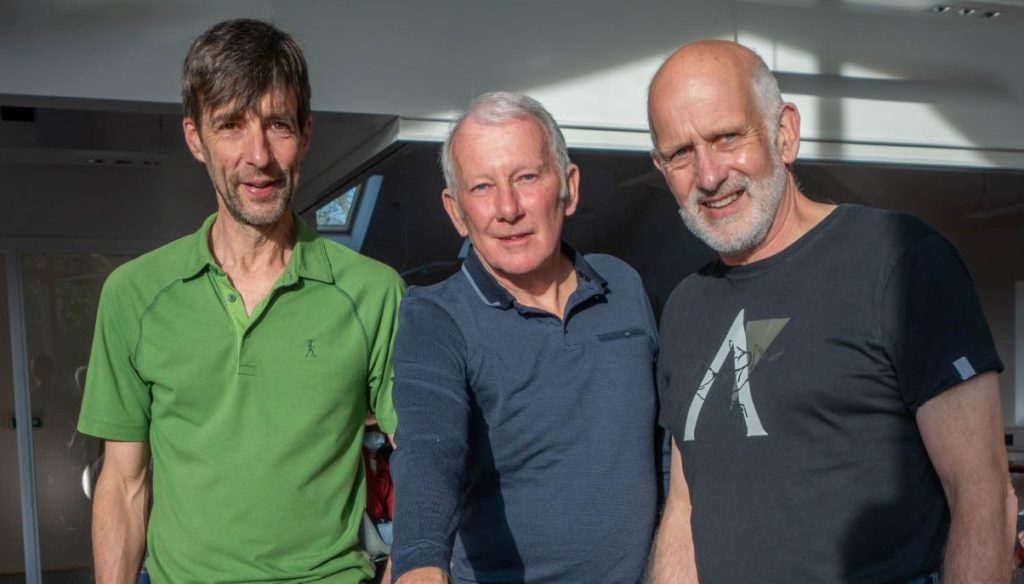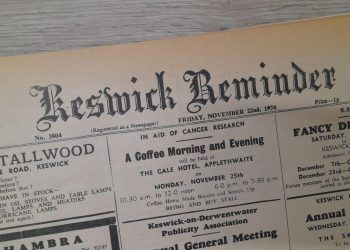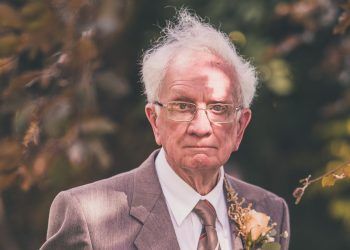
Four stalwarts of Keswick Mountain Rescue Team have received awards for their dedication and commitment to the emergency service.
The quartet were presented with long service awards in recognition of the 140 years in total they have spent helping to save lives on the Lake District fells.
Malcom Miller, chairman in 2013-15 and currently collection boxes co-ordinator, has clocked up a half-century of service. He says the over-riding benefit of being a team member for so long is the lasting friendships that have formed over 50 years.
He follows in the footsteps of Mike Nixon and Des Oliver, previous long-term members of Keswick Mountain Rescue Team, who Mr Miller said were “impressive acts to follow.”
Also presented with awards were Andy Jones, who has given 40 years’ service and was treasurer 1995-2000, and Chris Higgins, who has been leader since 2014. Chris received an award for 25 years’ service, along with Dr Tim Hooper, who continues to provide medical training and expertise.
Mr Miller joined the team in 1970 while he was a teacher at Keswick’s Lairthwaite School, along with his work colleague and fellow outdoor enthusiast Brian Spencer.
His first rescue involved a group on Carrock Fell, one of whom was suffering from exposure on a typically wet and windy Lake District day.
“By the time we got there, others in the group were also suffering but were able to descend by their own means while the initial casualty was stretchered off.
“That scenario was to be more or less repeated many times over the years to come, okay, different locations and different injuries, but the routine followed a familiar pattern,’’ Mr Miller added.
In the early 70s, it was the police station in Keswick that was the centre of communications and gathering point.
Members would be alerted individually by phone and then make their way to the station where a Landrover would be waiting.
There were few radios and once out on the hill, team members relied mostly on verbal communication.
“If there was a big search in the central fells, once we had been briefed and left the valley, we were on our own, covering our given area and returning to the valley for further instructions. Occasionally the search might be recalled, the signal being a maroon flare – if you could see or hear it!,” Mr Miller said.
He said much had changed over the years particularly with better and improved communications.
“Following a 999 call, the team can now have the first vehicle on its way within minutes. For years we used different kinds of pagers but today, with smartphones in everyday use, the response time is very much reduced,” he said.
He added that the resources available to the team have also improved tremendously over the years. There is now a dedicated base and a fleet of fully-equipped vehicles, along with a group of well-equipped and highly-skilled individuals ready to turn out at a moment’s notice.
He said he joined the team because he felt he had something to offer in terms of mountaineering skills forged with experiences in the Lakes, Scotland and the Alps.
“There was also the consideration that however careful or prepared one might be, accidents can happen to anyone at any time.
“Therefore helping someone out of a tricky situation, knowing that it could equally happen to you, seemed to be an appropriate way of giving something back to mountaineering,” he said.
The awards were made at the quarterly meeting of the team. Cakes from the Lakes donated a specially-made cake to celebrate the occasion.








